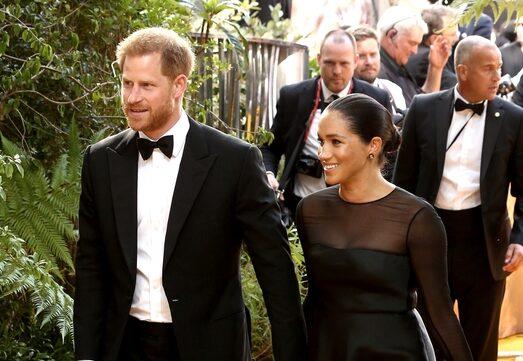Marilyn Knowlden, a prominent child actress of the 1930s and 1940s who appeared in six Academy Award Best Picture nominees, died Monday, September 11, 2025, at age 99. Knowlden passed away from natural causes at an assisted living facility in Eagle, Idaho, according to her son Kevin Goates.
During her Hollywood career from 1931 to 1944, Knowlden appeared in more than three dozen films, collaborating with some of cinema’s most celebrated actresses. She worked alongside Claudette Colbert, Katharine Hepburn, Irene Dunne, and Norma Shearer as her onscreen mothers in “Imitation of Life” (1934), “A Woman Rebels” (1936), “Show Boat” (1936), and “Marie Antoinette” (1938), respectively.
Born May 12, 1926, in Oakland, California, Knowlden was an only child whose father, San Francisco attorney Robert Knowlden Jr., became instrumental in launching her career. In 1931, during a business trip to Hollywood with his wife Bertha and five-year-old Marilyn, he contacted studios on her behalf after her Oakland acting teacher suggested she should be in movies.
Her breakthrough came when her father reached Paramount head of casting Fred Datig, who arranged an immediate interview for the role of Paul Lukas and Eleanor Boardman’s daughter in “Women Love Once” (1931). Though initially considered too young, Knowlden demonstrated her ability to handle extensive dialogue. The casting director noted that Boardman preferred a four-year-old for the part since she did not want audiences to think she was old enough to have an eight-year-old child. Knowlden was hired the following day, marking the beginning of her film career.
The blue-eyed actress appeared in six films during 1931 alone, including “The Cisco Kid,” “Husband’s Holiday,” “Susan Lenox” with Clark Gable and Greta Garbo, “Wicked,” and “Once a Lady.” Her father eventually abandoned his law practice to serve as her full-time agent, ensuring she worked as a freelancer rather than under studio contract.
Knowlden’s most notable films included several Best Picture nominees. She appeared in George Cukor’s “Little Women” (1933) and “David Copperfield” (1935), where she portrayed Lewis Stone’s piano-playing daughter alongside Freddie Bartholomew. Her other Best Picture nominees were “Les Misérables” (1935) with Fredric March, Mervyn LeRoy’s “Anthony Adverse” (1936) starring March and Olivia de Havilland, and Anatole Litvak’s “All This, and Heaven Too” (1940) featuring Bette Davis and Charles Boyer.
In John M. Stahl’s “Imitation of Life” and Richard Boleslawski’s “Les Misérables” (1935), she shared roles with Rochelle Hudson, playing Jessie Pullman and Cosette respectively. Her career reached a point where she rarely needed to audition, with casting directors already seriously considering her for specific parts.
Another career highlight included portraying a younger version of Ann Sheridan’s character in Michael Curtiz’s “Angels With Dirty Faces” (1938), starring James Cagney and Humphrey Bogart. She also appeared in two films with Shirley Temple: “As the Earth Turns” (1934) and “Just Around the Corner” (1938). Her final feature was “Broadway Rhythm” in 1944.
Despite her success, Knowlden missed out on one coveted role. She auditioned for the part of Scarlett O’Hara’s youngest sister, Carreen, in “Gone With the Wind” (1939) but lost the role to Ann Rutherford. She later expressed disappointment about not being cast in the iconic film.
Working with Hepburn proved memorable for the young actress. During filming of “A Woman Rebels,” where she used a bow and arrow, Hepburn promised her a dollar if she could hit a bull’s-eye. Hepburn signed an autograph reading: “To Marilyn — Hoping that her archery improves. Affectionately, Katharine Hepburn.” Knowlden treasured the autograph, particularly after learning how rarely Hepburn gave her signature.
During production on “Women Love Once,” director Edward Goodman introduced Knowlden to The Marx Brothers, who were filming “Monkey Business” (1931) on another soundstage. She played a piano duet with Chico Marx, with him instructing her on when to play specific notes based on his nods.
Knowlden later reflected on the special relationships that developed with actresses who portrayed her mothers, even though those bonds were temporary. She indicated that these professional relationships created meaningful connections despite the brief nature of film productions.
Her Hollywood career coincided with the golden age of cinema, and she worked with directors and stars who became industry legends. The actress maintained her career for 13 years, establishing herself as one of the era’s most recognizable child performers.
Knowlden’s father played a crucial role throughout her career, maintaining control over her professional decisions and preferring freelance work over studio contracts. This approach allowed her to maintain a more normal life outside of filming, as studio-contracted children typically attended studio schools, which would have disrupted her regular education.
The actress’s career spanned some of Hollywood’s most acclaimed films, though none of her Best Picture nominees won the top Oscar. Her extensive filmography and collaborations with major stars of the era established her as a significant figure in 1930s and 1940s cinema.







